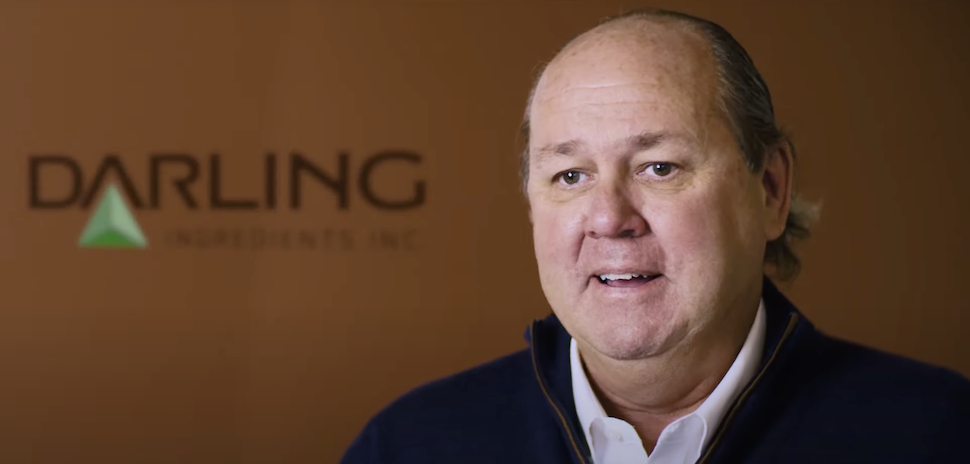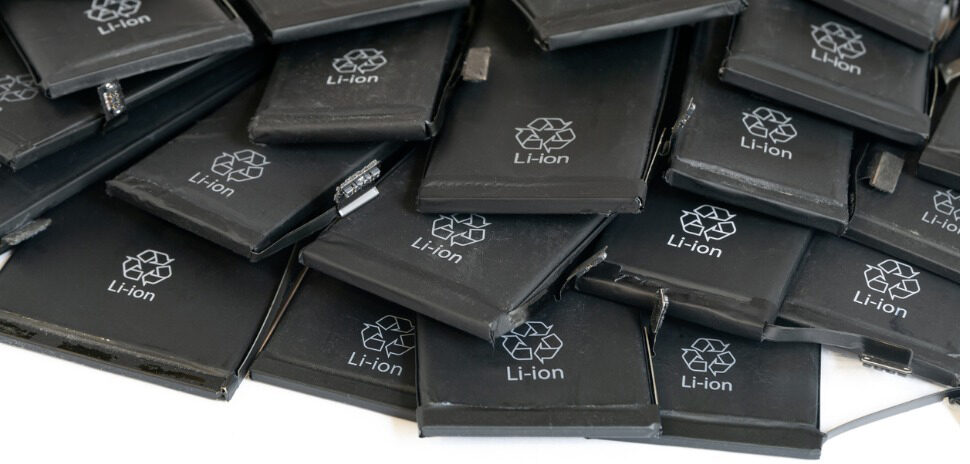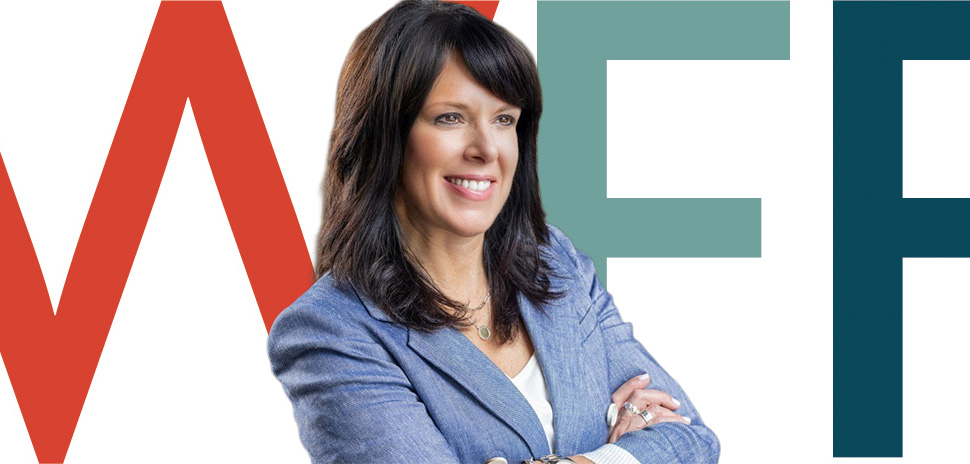Aiming to avert another environmental disaster like Dallas’ former Shingle Mountain, a more than century-old manufacturing company is bringing “circularity” to the roofing industry, starting in North Texas.
New Jersey-based GAF plans to build a commercial-scale shingle recycling facility in Corsicana, in an effort to divert the 90% of asphalt shingle waste that it says goes directly into landfills. The company is also planning to roll out more of the facilities across the U.S.
“In Texas, you’re in a hail belt, so roofs don’t reach their life expectancy for asphalt shingles,” GAF CEO Jim Schnepper told Dallas Innovates. “So they get torn off and they get put into the dump at a rate that’s shocking. You’re in a market in Texas which is a critical, important thing to solve for, because it can’t just keep filling up landfills with asphalt shingles. It’s just crazy.”
GAF expects to divert 300,000 tons of waste from landfills
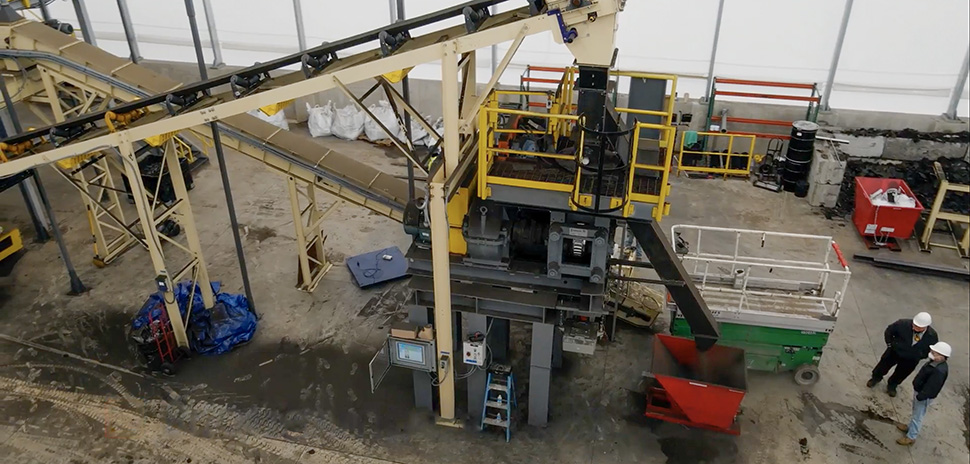
Still frame from GAF’s video, “Inside the GAF RoofCycle Process.”
At the new facility, GAF will separate materials like nails and granules from asphalt in used shingles, repurposing it into briquettes. The briquettes will then be turned into recycled shingles at GAF’s existing Ennis facility, which is set to be expanded as part of the move, for use by GAF and for sale to others in the roofing industry.
Schnepper said the shingles made from recycled material will be part of its general offering lineup, instead of as its own line, in order to boost the use of the shingles nationwide.
“This is something that should be done pretty close to the current price for the consumer. It’s just something that we should do,” Schnepper said. “That was our objective and that was one of the goals to try to get there.”
Schnepper said GAF expects the product to hit the market in 2024, with the first shingles being comprised of 15% recycled material. Eventually, it expects that ratio to rise to around 45% to 50%. Once fully operational, the Corsicana facility is expected to divert 300,000 tons of shingle waste from landfills, resulting in recycled materials that could cover more than 660,000 homes per year.
“It’s (the industry’s) duty to figure this out and keep costs down,” Schnepper said. “Figure it out, optimize it, find the solution, and get as close as you can to cost-neutral, because it can be done.”
New facility expected to create 50 new jobs
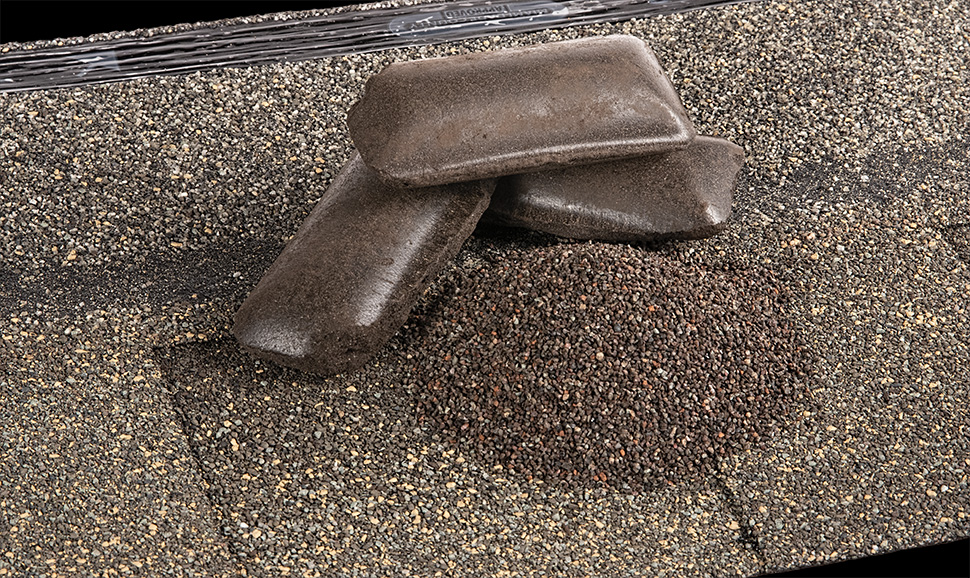
[Photo: GAF]
To staff the new facility, Schnepper said GAF plans to create around 50 new jobs. The company runs the GAF Roofing Academy, a program that targets underserved communities like returning veterans and the formerly incarcerated to help them find jobs in the industry.
Schnepper said GAF chose the DFW region for its first recycling facility in part due to its location in what he calls a “hail belt,” where residents need more roofing materials following severe weather. He also pointed to the region’s “business-friendly community,” talent pool, and geographic location giving it shipping access to markets across the Southwest and Midwest.
“The number of homes that are in Texas and the people that we rely on in Texas to make these products and others is just huge,” Schnepper said. “We’re going to continue to train as many people as we can to encourage people to get into this industry, because we have a labor shortage just like everybody else. We think we have a great industry…and we can connect a lot of people to it that have no idea about the potential of this industry.”
GAF plans nationwide recycling expansion as part of $100M effort
GAF, a subsidiary of global industrial firm Standard Industries, also has North Texas facilities in Dallas and Gainesville.
In an effort to scale its asphalt shingle recycling operations—a patented process that’s been in the works at the company for around the past decade—Schnepper said GAF will likely develop three to four more facilities across the U.S., where it says its materials cover one in four roofs. The move is part of a $100 million effort GAF announced last spring to develop the recycled shingle technology.
“This, I think, saves the asphalt shingle industry, because long-term…communities are going to say, ‘We won’t accept them in landfills anymore,’” Schnepper said. “Every business and industry is going to have to think about (the waste they produce) and somehow solve it at some point, because I believe that we’re filling landfills up in a fashion that we shouldn’t be. How do we fix that? You really have to push back on the companies that are making these products and push them to figure out ways to have circularity.”
![]()
Get on the list.
Dallas Innovates, every day.
Sign up to keep your eye on what’s new and next in Dallas-Fort Worth, every day.


